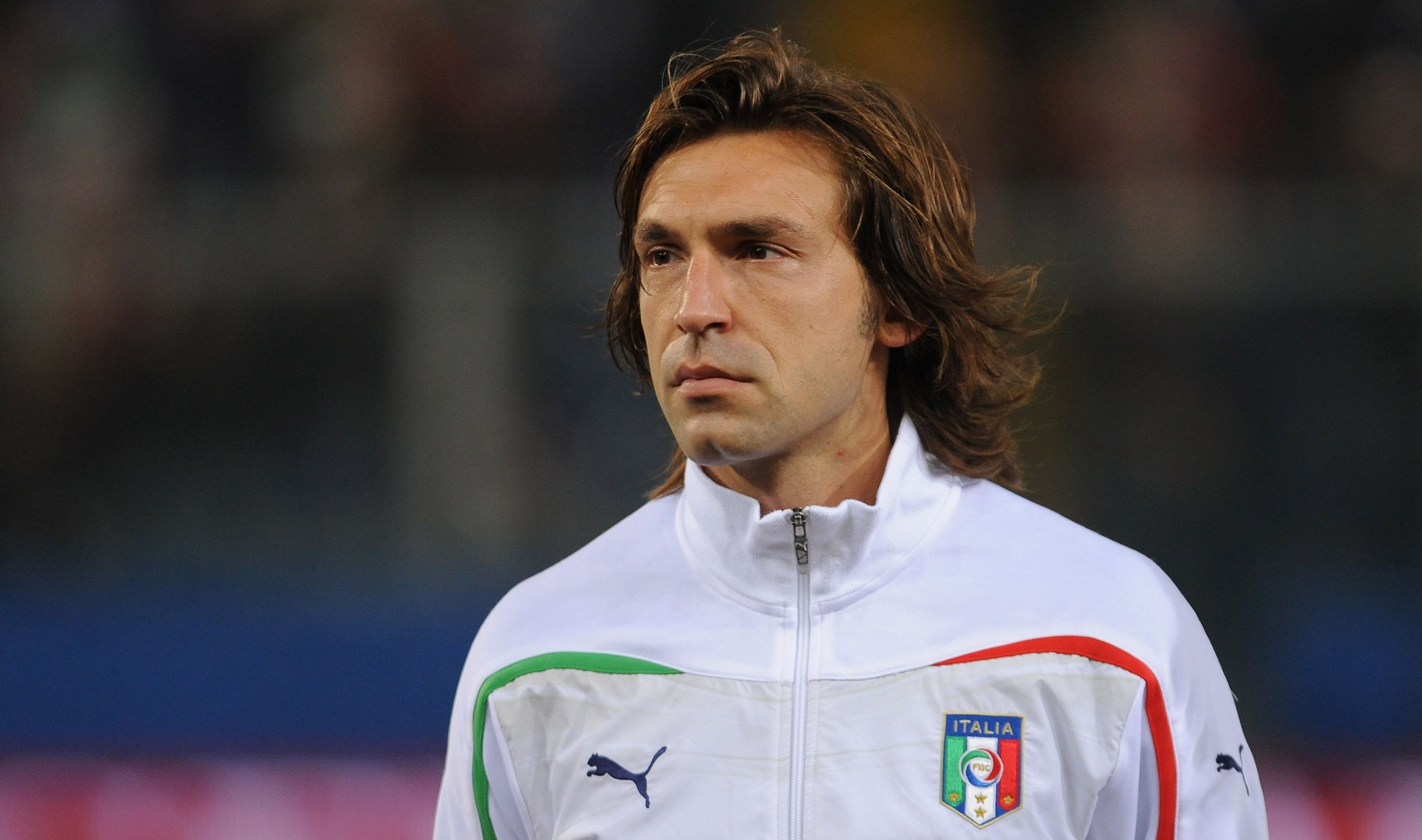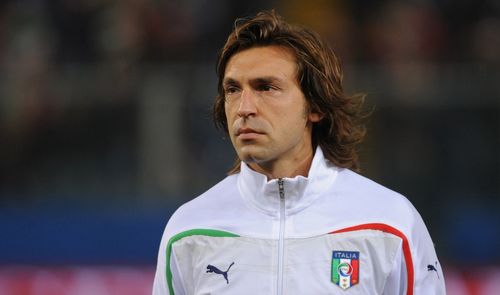
l'architetto - Andrea Pirlo
It was a lazy summer afternoon in 2006. It was roughly 30 yards from Roma’s goal, slightly to the left of centre, that Philippe Mexes charged in, failed to get the ball, and conceded a free-kick. Up stepped a greasy-haired Severus Snape lookalike, with menacing intent, trying to level the score currently standing at 1-0 to Roma, thanks to a Vincenzo Montella strike. The whistle blew and the Brazilian Doni, standing in the centre of goal, unsighted by a three-man-wall, stood rooted to the spot while the ball sailed past to his right, into the bottom left corner of the net. I let out a sigh of frustration. I would have to re-start my playstation 2, and, thanks to the auto-save feature, play the match all over again. I hated losing points in Fifa ’06.

What I didn’t know right away, however, while the game showed replays of that magnificent free-kick from all imaginable angles, was the fact that I was watching a master of the game. Italian football was virtually unknown to me prior to my ‘Manager Mode’ with A.S. Roma and there were none who even came close to matching Scholesy in the passing department. So, who was this Pirlo who seemed to spray the ball around the pitch with as much ease as he played pinpoint through-passes to beat the offside trap?
Born in Lombardy on the 19th of May, 1979, Andrea Pirlo is a classy play-maker who relishes the challenge of working the ball past opposing defences through relentless and accurate passing. A particularly outstanding component of his arsenal is the quality of his set-pieces. Be they corners, indirect free-kicks or direct free-kicks, there are few in the world of football who can measure up to this World Cup-winning Italian maestro.
Making his club debut with Brescia at the age of 15, Pirlo quickly broke into the first team and scored 6 goals in 47 appearances before he was snapped up by giants Internazionale. Here, Pirlo was shipped out on loan to Reggina first and then back to Brescia, before playing a season at his parent club. In spite of failing to break into the first team on a regular basis, Pirlo was signed by AC Milan for a fee of 18 million Euros.
At Milan, Pirlo blossomed into a force to reckon with, winning two Scudetto and two Champions league titles. It has not been all happiness for Pirlo at Milan however, and one finds it difficult to forget his penalty miss in that absolutely unforgettable Champions League final of 2005. One finds it equally difficult to forget the goal from over 30 yards out in the Champions league match against Real Madrid in 2009.
His success has not been limited to the club level and, in 2006, he was at in sensational form at the heart of the Italian team, helping them win the world cup with three man-of-the-match performances, including one in the final. He was also the captain of the Italian U-21 squad which won a European championship in 2000 and also reached the semi-finals in 2002. He has also tasted success at the Olympics, winning a Bronze medal with the Italian squad in 2004.

As the adage goes, all good things must come to an end. So it was with Pirlo’s association with Milan, when the player and the club reached a mutual agreement over Pirlo not signing a new contract at the end of the 2011 season. This proved costly for Milan as he was signed by the resurgent Juventus as a free agent and immediately had an impact. Starting with two assists in his very first game for The Old Lady, he went on to score 3 goals and bag a total of 13 assists for the season to help bring the Scudetto to Turin, in a season in which they remained unbeaten. Being named in the Team of the season only reinforced his credentials, and proved beyond doubt that he has what it takes to play at the top even today.
His role in Italy’s campaign at Euro 2012 has, so far, only enhanced his reputation further. Finding team-mates at will, Pirlo has notched up 2 assists and a goal. A goal, from a free-kick, against the Croatians, that is undoubtedly one of the best of the tournament thus far. Anybody who watched him play in the quarter-final against England will undoubtedly have the same glowing opinion of him as I did, after watching his virtual avatar score against my team back in 2006.
Hailing from the land of scintillating Operas, Pirlo is nothing less than an artist and a performer himself, composing beautiful passes on the pitch, and orchestrating play from his perch in the centre of mid-field. He is after all, as Marcello Lippi said, “a silent leader who speaks with his feet.”
It is no wonder then that his colleagues and fans have endearingly named him l’architetto; The Architect.